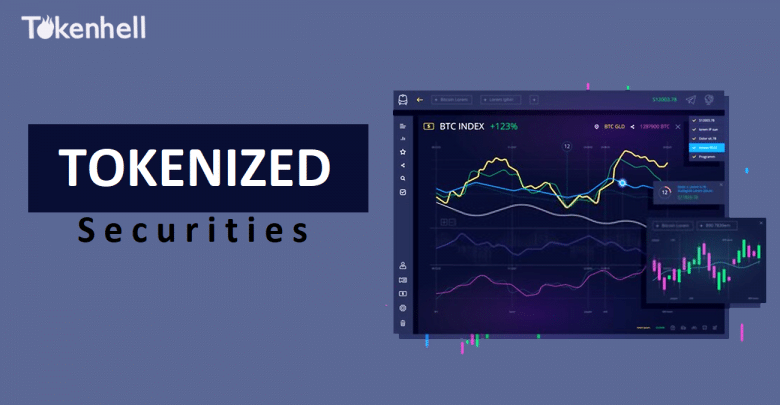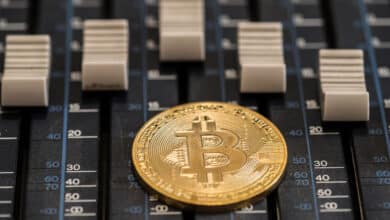Tokenized Security – Understanding the Concept and Benefits

Tokenized Security
The year 2017 saw an unprecedented increase in ICOs that has lead to the creation of new asset class that has challenged the structure of the financial markets. ICOs securities provide a vital source of innovation, which includes a more efficient pathway among a much larger investor circle. However, as the blockchain industry continues to advance in technology, the framework regulating these ICOs has not been able to successfully curb excesses in the blockchain market. Cases of fraud and scandal have been widely reported and this has led to uncertainty among stakeholders and issuers.
There has been a sharp decline of ICOs which has necessitated a shift from ICOs to STOs otherwise known as tokenized securities. The year 2018, witnessed a fall in the curve of ICOs as expressed in the financial market analysis graph.
Tokenized securities are better regulated than ICOs, and various underlying assets back them. These tokenized securities tend to produce a more natural outcome or yield for their holders. Tokenized securities are also said to provide a much higher degree of guarantee and stability for investors.
2019 also saw a year of improved structure in the blockchain industry due to the creation of a more compelling investment platform with higher technological advancement. It is estimated that 2020 will yet see a better combination of the structures in the blockchain industry. More investors and traders have also been expected to join the ever-increasing pool of participants in the blockchain industry. According to speculations, more service providers and licensed exchanges are presumed to bring about a more robust industry where regulations and security measures would be put in place, all thanks to what is offered by tokenized securities.
Understanding the concept of tokenized securities
To understand the basic concept of tokenized securities, we have to explain what security is all about.
From the essential point of view, we can define security as a type of financial instrument that is negotiable and also has monetary value. Security can also be used in representing ownership of stock in a company. In some cases, it could be seen as the relationship between a creditor and an entity.
Other meaning of security includes bonds or rights ownership as described by an option.
We can categorize security into three broad categories many.
- Equity
Equity has to do with investing in stocks that have been issued by another company. The shares may either be public or private. However, it should represent a means of entity ownership. The entity in which the stocks are owned maybe a trust or a corporation. Owners of entity form of securities are to some level of control by being able to participate in votings.
- Debts
Debt is a type of security that deals with money that was borrowed and is subject to repayment. The bond issuer is said to be indebted to the holder. He is accountable for the repayment of the principal along with interest on the maturity date, as documented in the security agreement. In most cases, the interest is usually paid at specified intervals.
- Investment fund
An investment fund is regarded as capital that is supplied by an investor to purchase security. An investor is said to retain full ownership of his shares allocated t him In the investment.
What is security tokenization?
Security tokenization is a means of materializing the claim of ownership of security by issuing a token that is duly registered on a DLT ( Digital Ledger Technology) infrastructure. A tokenized security may either be an investment fund, a bond, or equity. You may also refer to tokens as a fraction of a real asset that is securitized. The DLT infrastructure, put in place for issuance of the token, is dependent on the choice of legislation of the issuer.
For this article, we shall consider tokens as “security tokens,” and we shall explain in detail how these tokens apply in the blockchain industry. You should note that most experts in the blockchain market, avoid referring to tokens as digital securities. They believe that the term digital securities sound too vague, and besides, the trading of tokens digitally has existed for many years.
There different forms of securities that exist in our world today, but a large number of them are challenging to subdivide or transfer, which makes them be traded in paper or digital files that may be unsecured representing a part of the total asset. Trading via this means is quite challenging and may come with tracking or transferring difficulties. Let us take, for example, a real estate property, to transfer ownership of such an asset may require you to sell the asset. However, if the asset was tokenized, the ownership and rights of the asset can be transferred immediately through peer to peer trading.
Instantaneous trading is one of the many advantages of trading in the blockchain industry.
Security Token Offerings (STOs) emerged into the financial market in the year 2018. It is projected that security tokens may be the significant issuance source. It is crucial to understand the concept of securities as it relates to regulation to have a clearer understanding of security tokens. Security tokens must be subject to relevant rules and laws by the jurisdiction in which the asset is issued.
This perspective is also used when issuing security tokens in the blockchain industry.
Security Tokens vs. Utility Tokens
One way we can better explain security tokens is to look at it from the point of view of what security tokens do not represent (utility tokens). An ICO is a means of raising funds for any distributed network. Tokens are issued by a foundation or a company that contributors can use in redeeming an offered service by an entity.
Let us take, for example, and the token issuer is a company that aims to launch a centralized platform for sharing cars. A token may be used in this sense to represent each kilometer traveled by the vehicle. The token is a means of exchanging value between participants in a network through a representation of each service unit. Such type of token is referred to as utility tokens.
However, if generating monetary value for the holder is the primary purpose of issuing the token, it may be regarded as a security token because it has become an investment contract. Additionally, if the issuer has to receive funds to finance a company through equity debt or if the manger of an asset decides to offer an investment fund, then these token that represents the financial instruments may no longer be regarded as a utility. Still, instead they would be termed security tokens.
The significant difference between these two distinctive terms is that utility token is all about having a right to make use of a particular service or goods. In contrast, security tokens, on the other hand, refers to a stream of financial flows in the future as a result of the activities of the token issuer.
What are the significant benefits of tokenization?
Why is tokenization important? And of what benefit is tokenization to stakeholders and other participants in the blockchain industry?. Some persons have asked why the need to change a structure that has been around for many decades? The benefits of having tokenized securities over the traditional means of trading are quite numerous, and they include the following:
- Transparency and shared information
Security tokens are known for mitigating the asymmetry nature of the information that may be encountered in actual ownership transfer of a security. The blockchain may be used as a central reference of truth, which everyone in the value chain can share.
Tokenization is also said to bring about transparency in ownership and governance, which is far more liable than the conventional security offering outside the blockchain industry.
- Automation
Automation is one critical part of trading in the financial market that tokenized securities have enhanced. Several functions or roles played by middlemen can be fully automated via the blockchain. Having several intermediate stages often communication complications between investors and security issuers.
A separate ledger of data is maintained by each intermediary, while central intermediaries maintain aggregated records. Each party records may differ in certain areas because every holding level has to have its records reconciled with other documents. Such a process may require considerable operational costs aside from several reconciliation breaks that may need fixing.
However, with tokenized securities, this process may be automated and simplified through the use of smart contracts and uniform information sharing. There is no intermediary as shares are issued directly to investors, thus providing accurate information.
- Cost-effective
Most intermediaries in the traditional financial markets charge significantly high fees as payment for their services. It is the end investor who bears the brunt of these additional fees, which may limit the entry of investors into the market.
Through the use of smart contracts offered by blockchain technology, many expensive and low-value intermediaries that are typically not needed for the offering process are eliminated. By so doing, there may be a recreation of the link between investors and issuers, thus providing a more direct relationship between both parties.
- Immutability
Most financial institutions make use of private databases. However, accessing these databases may require different clearance levels among users or operators. There may be a user who has the highest permission level to obtain more classified financial transactions than others, e.g., the system administrator. Such an individual may alter existing data.
Regulators and investors may need to have a high level of trust for organizations before any form of trading or regulation activities can take place between the parties involved as they are no form of control mechanism to mute the data.
This one aspect that blockchain offers more value because immediately an investor buys a token, the transaction history can never be erased, neither can the transfer of ownership be denied. Once data has been inputted into the blockchain after completing a transaction, not even the system administrator can alter any data in the system.
During auditing, having an immutable system may help show auditors and regulators that your data has not been changed, which also reduces auditing costs and time.
- Exclusivity and liquidity
Securities that are privately issued may be challenging to trade, which makes them highly liquid. Tokenized securities create room for a better circulation of value as it helps to prevent the issue of double-spending. The ability to be able to break tangible assets through the use of tokenization also help create liquidity in marketers that hitherto have little or no access.
Private securities in the traditional markets are only traded with a large number of intermediaries in the secondary market. It also leads to difficulties in navigating regulations. It involves the use of a more streamlined and automated process. This requires a typical infrastructural distribution as provided by tokenized securities.
Companies can take away the hurdles that limit their securities liquidation. Secondary markets may also be able to offer increased liquidity that may be available at a fixed period in the trading market 24/7. It also helps provide a new set of investors as more people would love to put their money in a system that is transparent and devoid of complexities.
Tokenized security trading platforms are more affordable because unnecessary charges accrued as a result of activities of intermediaries have been eliminated. The possibility of dividing assets into smaller units for trading also contributes to the affordability that comes with tokenization. It also creates an allowance for fractional ownership. Take, for example, and you want to invest in an apartment, purchasing the entire building may scare away some investors due to its high cost. However, owning a fraction part of the building may be less expensive and more comfortable for you to sell later.
- Speed
Tokenization offers a fast trading process because ownership transfer is digitally processed. There is also zero settlement and a limitless trading time, which may occur at any time of the day on a 24/7 basis. There ia higher liquidity of traded assets, which also provides an opportunity for investors to sell tokens anytime they wish. Such processes are quite common among traditional securities with a sizeable public distribution. However, such occurrence is less common among other financial instruments or securities such as real estate, private equity, or loans that have a lower liquidity rate.
When these lower liquidity securities are tokenized through an STO, it helps in facilitating the transfer of these securities that are technically difficult in transferring them in their traditional state.
- Governance
Blockchain technology provides a high possibility of part of the compliance and regulatory processes as smart contracts. Accuracy, immutability and transparency are essential prerequisites to good governance in the blockchain industry. They are also a very useful tool in the aspect of regulation as they are aimed at protecting the interest of investors and issuers. It also helps to highlight any form of technical irregularities from the perspective of how the b; blockchain industry is being regulated, especially when it has to do with trading involving tokenized securities.
Good governance brought about by a transparent and highly effective trading process may also serve as an avenue for which other traditional financial trading markets can use as a standard to set rules for their rules.
- Regulatory
It may take several years for traditional assets to achieve full tokenization. There is a fast pace of technological advancement in the blockchain industry, but yet the pace of amendment to existing regulations is slow. Making full tokenization for traditional assets is a challenging task, but it is one that is full of opportunity for the financial market in general. It is an opportunity for regulatory bodies to wake up to their responsibilities and ensure that the obvious flaws that existed in the industry are identified and eliminated.
Conclusion
Tokenized securities have proven to be a viable option for carrying out trading activities in the financial market. Tokenized securities may be in the form of debts, bonds, equity, or investment funds. Any type of asset that can be traded for the sole purpose of generating revenue for an investor through a third party is referred to as security. We have seen that tokenized security differs from utility securities because the former hinges on the objective of creating monetary value for the investment made while the latter is focused solely on providing utility
The benefits of trading on tokenized securities can not be overemphasized. It offers a more transparent platform for investors to do business because transactions made on the blockchain can not be erased, unlike other forms of traditional trading where an administrator can alter or falsify records. Tradings on tokenized securities are also automated, which has helped to take away any kind of complexities. Tokenized securities have provides an avenue for more players to join the blockchain industry because it is immutable, affordable, fast, and transparent.
Tokenhell produces content exposure for over 5,000 crypto companies and you can be one of them too! Contact at info@tokenhell.com if you have any questions. Cryptocurrencies are highly volatile, conduct your own research before making any investment decisions. Some of the posts on this website are guest posts or paid posts that are not written by Tokenhell authors (namely Crypto Cable , Sponsored Articles and Press Release content) and the views expressed in these types of posts do not reflect the views of this website. Tokenhell is not responsible for the content, accuracy, quality, advertising, products or any other content or banners (ad space) posted on the site. Read full terms and conditions / disclaimer.







